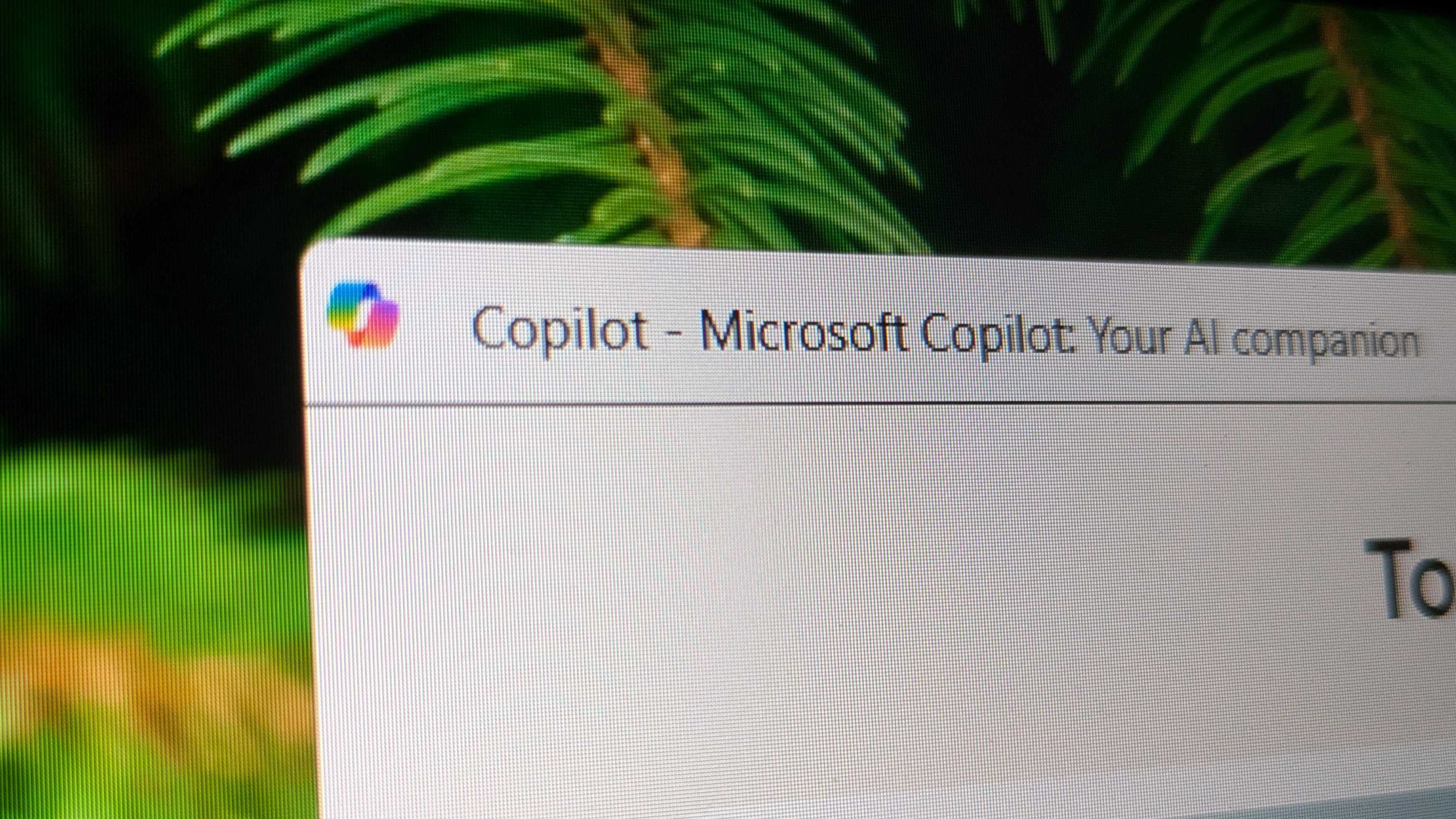In the PC industry, every year is a big year for laptops. New processors emerge, form factors are refined, and new connectivity standards and screen technologies are embraced. Yet in 2024 something genuinely big happened: the arrival of the AI PC.
In truth, the first AI PCs started to appear late in 2023, with the launch of Intel’s Core Ultra ‘Meteor Lake’ processors and AMD’s Ryzen Mobile 7040 and 8040 series processors. These were the first mainstream laptop processors to integrate not just a CPU and GPU but a neural processing unit (NPU), designed specifically to accelerate AI tasks. Meanwhile, the Windows 11 23H2 update integrated some of Microsoft’s Copilot generative AI features into the core OS.
These early AI PCs didn’t build that much momentum. Copilot’s AI computation was focused not on local processing power, but on the cloud, leaving those early NPUs mostly underutilized. What’s more, those NPUs were underpowered. If you were planning to run Large Language Models (LLMs) locally, you were actually better off with a laptop loaded with RAM and a fast dedicated GPU.
Copilot+ PCs
Microsoft changed the game in May with the introduction of the Copilot+ PCs. Microsoft didn’t simply integrate generative AI features into Windows 11, but put its money where its mouth was, making the seventh-generation Surface Laptop and the 11th-generation Surface Pro tablet the flagship Copilot+ PCs. Together with its new partner, Qualcomm, it drove the adoption of AI features and NPU support in third-party applications while making a stronger case for developers to make their software compatible with ARM64. Where previous Surface devices had come in x86 and ARM64 flavors, the Surface Laptop 7 and Surface Pro 11 were defiantly ARM-only.
The Copilot+ PC initiative has been useful. Microsoft set a baseline requirement for reasonable on-device AI performance, with 16GB of RAM, 256GB of storage, and an NPU capable of running at a minimum 40 Tera Operations Per Second (TOPS). This gives buyers confidence that Copilot+ PCs will run new and future generative AI apps while giving developers a performance target to work with. That means we’re seeing more applications that harness the power of the NPU, including Affinity Photo 2, Blender, DaVinci Resolve, Capture One, Cubase, and Nuendo. The Windows Copilot Runtime and Windows Copilot Library should also make it easier for more developers to do the same, or for enterprises to support the NPU within their own bespoke business apps.

Microsoft Office and the Copilot features of Microsoft 365 don’t currently use the NPU, but this may change with new features and updates. What’s more, there are areas, like Microsoft’s Windows Studio Effects camera and audio enhancements, where the NPU can enhance sound and image quality with a lower power overhead than software running on the CPU or GPU. That’s good for battery life, and Microsoft and its partners are doing similar things with AI-enhanced security.
Most of all, the Copilot+ PC initiative delivered some of the most exciting laptops of the year. Devices like the Surface Laptop 7, Surface Pro 11, and Lenovo Yoga Slim 7x are beautiful, slim, and light devices with great screens and high levels of performance. Crucially, the Snapdragon X processors have proved spectacularly efficient; these are the first Windows 11 devices to reach MacBook Air levels of battery life. HP’s Omnibook X 14 survived our video rundown test for a staggering 19 hours.
Needless to say, Intel and AMD want their own piece of the Copilot+ PC action and have released their own compliant processors over the last few months. Both Intel’s Core Ultra Series 200 processors and AMD’s Ryzen AI 300 series processors beat Qualcomm’s tech on NPU performance and have faster integrated GPUs. What’s more, both Intel and AMD’s CPUs have shown similar improvements in energy efficiency. There’s just one problem: at the time of writing in early December, Microsoft has yet to roll out Copilot+ features and support to Intel and AMD devices.
The market for AI PCs
In terms of delivering new hardware, Copilot+ has been a big success. On the sales front? Not so much. Earlier this year, Gartner estimated that 43% of PCs sold in 2025 will be AI PCs, while HP CEO Enrique Lores predicted that AI PCs would make up 50% of PC shipments by 2027. Yet in Q3 2024, Snapdragon X devices made up less than 1.5% of PCs sold. According to figures from Mercury Research and Canalysis, PCs that incorporate an NPU now makeup somewhere between 36% and 53% of PC shipments, yet less than 10% of the PCs sold in Q3 2023 met the NPU performance requirements of the Copilot+ PC spec.
Some of this comes down to the fact that the AI features they’re delivering today aren’t all that compelling, especially for business. We are now using a Copilot+ PC nearly every day for work, yet we barely notice its AI features. Windows Studio Effects is a plus in an era of ubiquitous Web meetings, but other video and audio enhancements are available. The generative AI image-generation features introduced with Copilot+ are more an entertaining gimmick than a must-have. The controversial Recall feature, allowing users to search through snapshots of relevant content recorded directly from their screen, was instantly recognized as a security nightmare by enterprise IT departments, and still has yet to see wide release.
Meanwhile, the most powerful generative AI features of Copilot on Microsoft 365 – narrative summaries, text generation, AI editing tools, and data analysis – still run in the cloud, independent of whether or not end-users are working on Copilot+ PCs. They also require a £19 to £25.94 per month Microsoft 365 Copilot subscription.

Microsoft also has competition. In May, Google announced its own generative AI initiative, combining Chromebook Plus laptops with its Gemini AI tech. Many of the strongest AI features are still running in the cloud – and require a £19 per month Gemini Advanced subscription – but Google has done a good job of integrating its Help me write text generation and Help me read AI-summarization features into Chrome OS and its Google Workspace apps. They’re often just a keypress or a mouse click away. Google also has the advantage that the same services work across Chromebook Plus devices, Workspace apps, and Pixel phones, and had the good sense to bundle in a year of Gemini Advanced with every purchase of a Chromebook Plus.
Apple is also introducing its own AI tech, Apple Intelligence, to an already strong line-up of Macbook laptops and Mac Mini PCs. The initial writing and summarization tools and photo search and enhancement features have potential, even if image and emoji-generating features are more focused on consumers than professionals.
Will AI PCs become the default?
Some analysts believe that the AI PC will become the dominant PC almost by default. In September, Gartner’s Ranjit Atwal noted that ‘most PCs will eventually integrate AI NPU capabilities‘ and that businesses wouldn’t ‘pay a premium for AI features but will purchase AI PCs for future-proofing and because this is their only choice that offers a more secure and private computing environment.’
Yet it’s also clear that Microsoft, along with Apple and Google, needs to deliver more convincing reasons for enterprises to invest in AI PCs, making AI a motivating factor rather than a bonus on top of slimmer, lighter form factors and superior battery life. There’s evidence that it’s doing so, with Copilot+ enhancements to Windows Search and context-sensitive ‘Click to Do’ suggestions which promote AI actions according to the content on your screen. Increased NPU support within key business apps could also make a difference, particularly in areas where businesses have security or privacy concerns about using generation AI in the cloud.
The AI PC has the potential to become the next stage in the laptop’s evolution, but first, it needs more substance, and maybe a little less hype.












